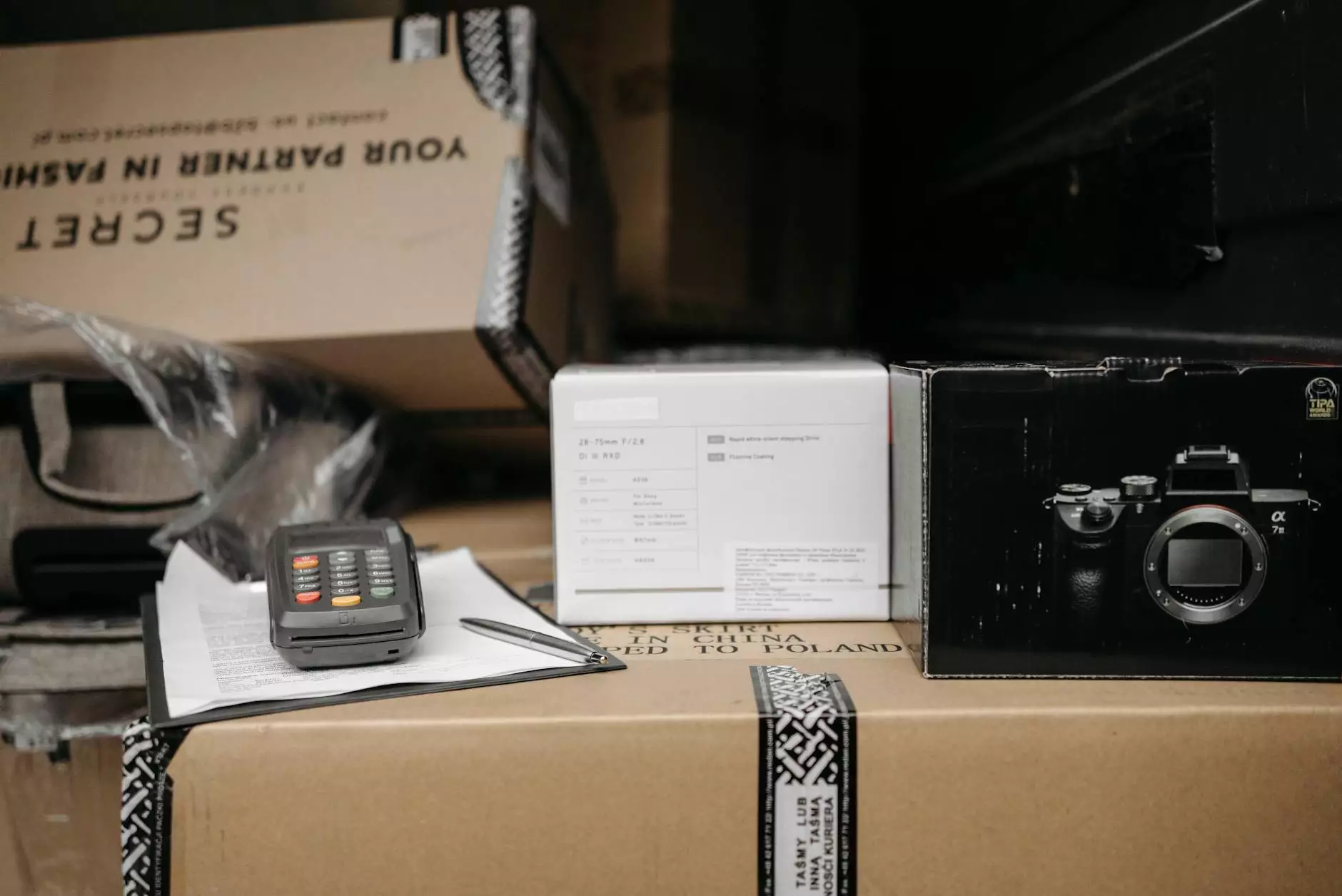Optimizing Your Success with Independent Freight Dispatching

In today’s rapidly evolving business landscape, transportation and business consulting industries are undergoing remarkable transformations. The rise of independent freight dispatchers represents a significant shift that can lead to enhanced operational efficiencies and reduced costs for businesses involved in logistics. In this comprehensive article, we will explore the role of the independent freight dispatcher, the numerous benefits they provide, and how you can leverage their services for your business's success.
Understanding the Role of an Independent Freight Dispatcher
An independent freight dispatcher acts as a vital link between shippers and carriers, managing the transportation process while ensuring timely deliveries and optimizing routes. Unlike conventional dispatchers tied to specific carriers, independent freight dispatchers operate autonomously, providing flexibility and personalized service. Here are the primary responsibilities:
- Load Management: Independent freight dispatchers take charge of finding, negotiating, and managing loads for carriers, ensuring that trucks remain profitable and busy.
- Route Planning: They utilize various tools and software to plan optimal routes, reducing travel time and costs while enhancing efficiency.
- Paperwork Handling: Dispatchers handle necessary documentation, ensuring compliance with regulatory requirements and facilitating seamless transportation.
- Communication: They maintain open lines of communication with both shippers and carriers, ensuring everyone is updated about the load status.
The Benefits of Engaging an Independent Freight Dispatcher
Incorporating an independent freight dispatcher into your logistics strategy can provide numerous advantages. Here are some of the most significant benefits:
1. Cost Efficiency
By outsourcing your dispatching needs to an independent professional, you can significantly cut down on administrative costs. This approach allows businesses to allocate resources more efficiently, focusing on core activities rather than the complexities of logistics.
2. Increased Flexibility
Independent dispatchers offer tailored solutions to meet unique business needs. Their flexibility allows you to adapt quickly to market changes, seasonal fluctuations, and unexpected challenges, ensuring your logistics operations remain robust.
3. Enhanced Expertise
Engaging with established independent freight dispatchers means leveraging their experience and insight into the logistics industry. They stay abreast of current trends, regulations, and best practices, ensuring your business benefits from their knowledge.
4. Improved Load Matching
The expertise of an independent freight dispatcher ensures better load matching, which means carriers will not only be busier but also more profitable. Efficient load matching positively affects the entire supply chain, maximizing revenue.
5. Focus on Core Business Functions
By allowing an independent freight dispatcher to handle logistics operations, your business can concentrate on its core functions such as sales, marketing, and product development. This strategy enhances productivity and overall company performance.
How to Choose the Right Independent Freight Dispatcher
Selecting the ideal independent freight dispatcher can directly impact the success of your logistics operations. Here are some essential criteria to consider:
1. Experience and Reputation
Look for dispatchers with a proven track record in the industry. Online reviews, testimonials, and referrals can help you gauge their reputation and reliability.
2. Technology Utilization
Modern dispatch requires advanced software and tools for route optimization, load matching, and communication. Ensure that the dispatcher you choose fully embraces technological solutions.
3. Communication Skills
Effective communication is crucial in logistics. Opt for a dispatcher who communicates clearly and regularly, keeping all parties informed throughout the process.
4. Knowledge of Regulations
Transportation regulations can be complex and region-specific. Your chosen independent freight dispatcher should be well-versed in applicable laws and compliance requirements to avoid costly penalties.
5. Services Offered
Evaluate the services provided by potential dispatchers to ensure they align with your business needs. This may include load booking, dispute resolution, and strategic planning.
The Process of Working with an Independent Freight Dispatcher
Understanding the workflow between a business and an independent freight dispatcher can streamline the onboarding process and improve collaboration. Here’s how the partnership typically unfolds:
1. Initial Consultation
During this stage, you’ll discuss your logistics needs, routes, availability, and any specific challenges you face. This conversation helps you and the dispatcher align on goals and expectations.
2. Setting Up Systems
Once you’ve chosen a dispatcher, you’ll need to set up systems for communication, billing, and reporting. This may include sharing access to transportation management software and establishing operating procedures.
3. Load Matching and Route Planning
The dispatcher will begin working on matching available loads with suitable carriers, planning efficient routes based on your business needs and capabilities.
4. Execution and Monitoring
Once loads are assigned and routes planned, the dispatcher will oversee the execution of the transportation process, closely monitoring progress and managing any arising issues.
5. Review and Optimization
After completing deliveries, it’s essential to review performance with the dispatcher. Discuss what worked well and identify areas for improvement. Continuous optimization is crucial for long-term success.
Maximizing Efficiency with Technology in Freight Dispatching
Today’s logistics landscape is heavily influenced by technology, making it an indispensable component of successful independent freight dispatching. Here are some ways technology enhances freight dispatching:
1. Real-Time Tracking
Tracking systems provide up-to-date information on cargo location, allowing for better planning and communication with clients. Real-time updates help businesses manage expectations and respond proactively to issues.
2. Automated Load Boards
Online load boards where shippers and carriers can connect seamlessly enhance load matching. Independent freight dispatchers utilize these platforms to maximize carrier efficiency and revenue.
3. Route Optimization Software
Advanced algorithms can calculate the most efficient routes based on traffic, weather conditions, and vehicle capability, which minimizes fuel usage and delivery times.
4. Electronic Document Management
Handling paperwork can be cumbersome; however, electronic document management systems streamline this process, increasing efficiency and reducing errors associated with manual paperwork.
The Future of Independent Freight Dispatching
The logistics sector is on the brink of unprecedented changes, with advancements such as autonomous vehicles and smart logistics. The role of an independent freight dispatcher will continue to evolve, requiring adaptability and ongoing education. Here are some trends to watch:
1. Increasing Demand for Sustainability
As businesses become more environmentally conscious, there is a growing demand for sustainable logistics solutions. Independent dispatchers will play a crucial role in optimizing routes and reducing carbon footprints.
2. Integration of AI and Machine Learning
Artificial intelligence offers promising applications for optimizing dispatch operations. AI can analyze vast amounts of data to predict patterns and improve decision-making accuracy.
3. Evolving Regulatory Landscape
Keeping pace with regulations is essential for independent freight dispatchers. Their ability to navigate these changes will directly impact the businesses they serve, making regulatory knowledge even more critical.
4. Emphasis on Customer Experience
In a competitive market, providing exceptional customer service is paramount. Dispatchers who prioritize communication and service flexibility will set themselves apart.
Conclusion: The Strategic Advantage of Independent Freight Dispatchers
In a world where efficiency and adaptability are non-negotiable, engaging with an independent freight dispatcher serves as a strategic advantage. Their expertise not only improves your logistics process but also contributes significantly to cost reduction, better load management, and increased efficiency. By partnering with a capable independent freight dispatcher, businesses can navigate the complexities of transportation seamlessly, ensuring sustainable growth in an increasingly competitive landscape.









